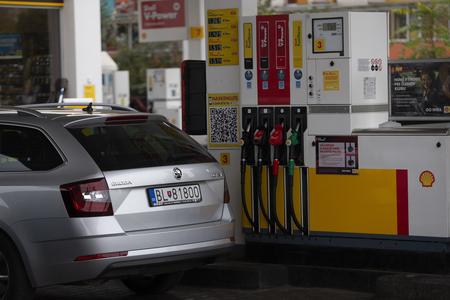Fitch Ratings, an international economic rating agency, has affirmed Slovakia’s A-rating with a negative outlook.
The rating, published on Friday, February 17, was not downgraded thanks to Slovakia being a European Union member and a member of the eurozone area, which both continue to perform economically well. At the same time, the agency drew attention to Slovakia’s weaker structural indicators, a large net external debt position, and the country’s high dependence on the car industry.
External debt in Slovakia (€ billion)
The year-on-year production of cars slowed down in 2022. This had an effect on the performance of the overall Slovak industry. Still, about a million cars are estimated to have been manufactured in Slovakia last year.
As for the negative outlook, Fitch Ratings points to the lasting uncertainty with regard to the country’s fiscal and macroeconomic performance impacted by the war in Ukraine and the related energy crisis, which stems from “still considerable exposure to Russian energy”. According to the agency, this ongoing dependency could have an impact on Slovakia next winter, unless medium-term diversification plans are put in place.

Slovakia’s fiscal deficit is expected to increase from an estimated deficit of 3.3 percent in 2022 to 5.6 percent of GDP in 2023 as a result of adopted one-off measures worth more than €5 billion to support households and businesses during the energy crisis; but also due to higher salaries and the government’s package of economic measures targeted at some households costing 1 percent of GDP. Windfall profits and EU funds, on the other hand, should serve as some fiscal cushion in 2023, the agency notes.
Uncertainty also regards the political climate. The country is run by a weak government under the leadership of interim PM Eduard Heger. The situation might worsen after the early parliamentary elections in September, the agency emphasises in its commentary. The agency writes that a change in government is likely. Referring to recent polls, the rating agency has noticed a risk of anti-NATO and anti-EU parties forming a coalition government, which could affect the relationship between Slovakia and the Union, but also between the country and investors.

“It's unclear whether political parties are willing and able to put in place revenue-raising reforms or reduce expenditure, particularly if demands for household and business support persist,” Fitch Ratings adds in the commentary.
Fow now, Fitch Ratings forecasts that Slovakia’s GDP will stand at 1.3 percent in 2023. The growth is expected to be driven by EU funds and the consumption of households, which could be boosted by expected lower inflation, 9.7 percent, this year and the stable labour market.
The agency concludes that fiscal consolidation and reduced dependence on Russian energy could help Slovakia improve its current rating; but it also warns that it could downgrade Slovakia’s future rating if additional expenditure measures delaying fiscal consolidation are adopted; or the future government takes steps that will harm the country’s economy or its reputation among partners.



 Former PM Robert Fico (Smer-SD) might join a coalition government after the September early elections. His party has come second in recent public polls. Fico has admitted he sees politics done by the increasingly authoritarian Hungarian PM Viktor Orbán as inspiration. (source: SITA - Diana Cernak)
Former PM Robert Fico (Smer-SD) might join a coalition government after the September early elections. His party has come second in recent public polls. Fico has admitted he sees politics done by the increasingly authoritarian Hungarian PM Viktor Orbán as inspiration. (source: SITA - Diana Cernak)